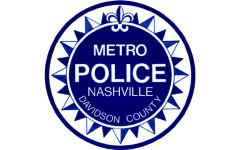There are a wide variety of scams happening in other communities across the nation. We know Scammers like to take advantage of people all the time especially during natural disasters and emergencies.
Remember most scams try to entice a special offer, present a sense of urgency, and usually sound too good to be true. These Scammers try to take advantage of people with the intent to prey on their fears about the virus. They may try to seek personal information and/or financial payments. Below are a few examples to be on the lookout for and not fall victim to.
Some scams to be made aware of are as follows:
Phone scams
This is the most common scam and often related to sales or seeking personal information. Hang up on robocalls and don’t press any numbers. Some scams have been specifically seeking payment to reserve a COVID-19 vaccine, test kit sales, and recent announcements of checks being payable to citizens by the United States Government.
Phishing scams
These involve email, text messages, social media, or a link that looks innocent. Don’t click, tap or download unknown links from unknown senders. Watch for emails and fraudulent links claiming to be the Centers for Disease Control (CDC) and Prevention and World Health Organization (WHO).
COVID-19 Test Kit or cure scams
There currently IS NOT an FDA approved home test kit avail-able for the virus. Ignore online offers for vaccinations. There currently are no vaccines, pills, potions, lotions, lozenges or other prescription or over-the-counter products available to treat or cure Coronavirus disease 2019 (COVID-19) — online or in stores.
Door to Door solicitations
Be cautious of any unauthorized individual(s) coming to your door-step to try to speak to you about COVID-19/Corona Virus and potentially posing as testers or to selling test kits. Also beware of CDC impersonators who may go door-to-door claiming to be from the organization. Report imposters to your local law enforcement.
Donation seeking
Be cautious donating to someone you don’t know, makes you feel rushed, and are seeking cash, gift cards, or asking for you to wire money. Before donating, confirm you are dealing with a reputable charity.
Information on Covid-19 Economic Impact Payments
Helpful resources for charity background information:
Government sending checks to citizens
The government will not ask you to pay anything up front to get this money. No fees. No charges. No nothing.
The government will not call to ask for your Social Security number, bank account, or credit card number. Anyone who does is a scammer.
These reports of checks aren’t yet a reality. Anyone who tells you they can get you the money now is a scammer.
Resources for reporting scams
If you have fallen victim to a crime involving a scam by providing personal information/financial payment, please contact the Metro Police at 615-862-8600 and file a report.
If you notice any scams, fraud, price gouging, or other attempts to take advantage of Tennesseans during this public health emergency, contact Tennessee Division of Consumer Affairs by filing a consumer complaint.
Any suspicious claims (imposters, phone/text, internet, robocalls etc.) report them to the Federal Trade Commission.

